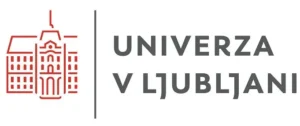Physics of quantum technologies
- About research programme
Head: prof. Rok Žitko, PhD
Code: P1-0416
Duration: January 1, 2022–December 31, 2027
Research programme “P1-0416: Physics of quantum technologies” is focused on studying quantum phenomena in individual objects and their assemblies (optical photons, trapped cold atoms, trapped dielectric particles, superconducting qubits, hybrid nanowires). Because these systems can remain quantum coherent over long times, they are well suited for storing and manipulating quantum information for quantum applications, and for fundamental tests of quantum physics.
The research group consists of theoretical and experimental physicists working in complementary research areas of quantum physics. We will focus on the following:
- We will develop a system for generating and transmitting entangled photons compatible with quantum memories. We will participate in the efforts to build a regional quantum communication network and a European quantum communication infrastructure using existing fiber infrastructure.
- We will develop a setup to optically trap sub-micron dielectric particles in ultra-high vacuum and to use cavity quantum optomechanics to control and to cool their center-of-mass motion. We will investigate preparing such systems in non-classical states. These developments will be key for future space-based tests of quantum physics, for applications of quantum optomechanics in space and for high-sensitivity measurements.
- We will explore novel quantum phenomena in trapped cesium atoms at extremely low temperatures. We will build a new apparatus with the capability of manipulating the atoms with optical tweezers in order to precisely engineer atomic arrays and to explore novel approaches for quantum simulation and quantum-enhanced metrology, e.g. solving optimisation problems and precision magnetometry.
- Through the use of state-of-the-art quantum annealers we will conduct basic research in the field of condensed matter physics, focusing on non-equilibrium dynamics. We will explore the applicability of quantum annealers as optimization problem solvers in areas such as machine learning, material science, biology, pharmacy and finance. We will study quantum scars that break ergodicity. We will develop efficient error correction algorithms for quantum annealers.
- We will develop new experimental techniques for studying individual and coupled superconducting qubits. The emphasis will be on detailed study of sources of energy relaxation and decoherence in qubits related to material and interface defects as well as to the interaction with controlled and uncontrolled system degrees of freedom in complex superconducting devices.
- We will develop a complete theory of sub-gap states in ultrasmall superconductors coupled to quantum dots and similar nanodevices, devise new probing and manipulation techniques, and explore complex assemblies of such elements. We will also provide general theoretical support to all experimental endeavors in the programme and investigate interacting many-body models that describe engineered systems, such as Bose-Einstein condensates, optical lattices, and superconducting circuits.
